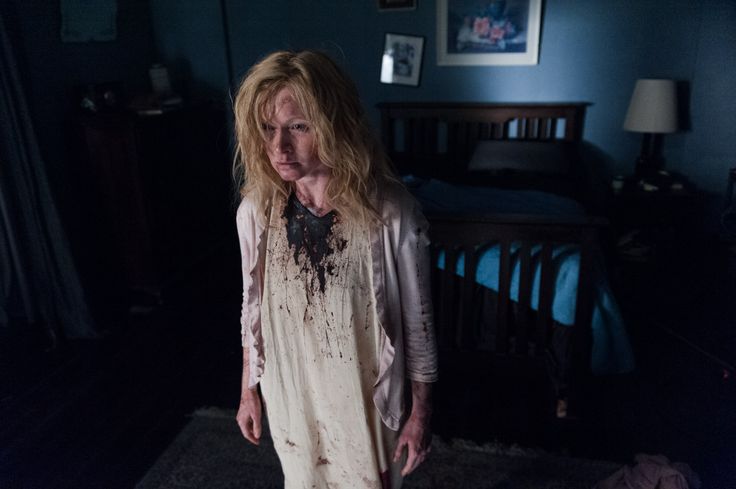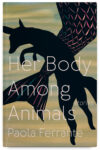
The poet Robert Bly, in his A Little Book on the Shadow, wrote about “the long bag we drag behind us.” Throughout our lives, Bly said, we excise parts of ourselves as if they were tumors, shoving them into this bag, hidden from view: perhaps, as children, a noisy ebullience that irritated our parents; or an inquisitiveness that a teacher shut down; or a sensitivity that made us targets in the cutthroat world of adolescent politics. By the time we reach adulthood, Bly wrote, the bag is stuffed, and if we attempt to peek inside, we find that all the things we secreted away have, in their long tenure in the darkness, turned sinister: “they are not only primitive in mood, they are hostile to the person who opens the bag.”
Bly was exploring the concept of the shadow self, one of the enigmatic beings that make up the pantheon of Jungian psychology. According to Jung, the shadow is everything the conscious ego rejects as unpleasant, implicating, and threatening. Jung wrote in “On the Psychology of the Unconscious” that together, these little foibles add up to a mass, “and there emerges a raging monster; and each individual is only one tiny cell in the monster’s body, so that for better or worse he must accompany it on its bloody rampages and even assist it to the utmost.”
To have within oneself a rampaging monster is alarming; for a mother with children in her care, it is unacceptable. Certainly, from Medea to Mommie Dearest, we have examples in the canon of mothers who fall tragically short of being the ideal, beatific nurturers, but seldom is there a middle ground depicted between parental bliss and villainy — which makes the Australian indie The Babadook a rarity. It poses as a horror flick, but in fact is a psychological drama that chronicles one woman’s confrontation with her shadow. (Spoilers ahead.)
The film’s protagonist, Amelia, is a widow whose husband was killed in a car crash while driving her to deliver their baby. That child, Samuel, now approaching seven years old, shows precocity in all the wrong ways, for example by devising low-tech but ingenious weaponry designed to slay monsters (and if you show the audience a medieval-looking slingshot that launches sharp metal darts in act one, you’d better be prepared to use it by act three). Amelia is made increasingly distraught by Sam’s supposed behavioral issues; Sam, in turn, repeatedly insists that Amelia promise she’ll protect him, and allow him to protect her.
Then The Babadook, a seriously demented children’s story of mysterious origin, appears on Sam’s shelves, promising a visit from a black-coated figure with a top hat and long talons, a Victorian-looking boogeyman. The book’s rhyming narrative is a neat analogue for the impossibility of ridding oneself of the shadow: “I’ll wager with you, I’ll make a bet,” it reads. “The more you deny, the stronger I get.” As for the power of denial, the film suggests Amelia herself may have written the book: in one scene, she mentions that she used to be an author, penning mostly “kids’ stuff.” She destroys the first version of the book, only to have an even more ominous sequel turn up on her doorstep: “Oh, come see what’s underneath,” the text taunts. By this point, Sam’s phantoms have been rendered real enough to knock, growl, make phone calls, and skitter like a massive insect across Amelia’s bedroom ceiling.
The build-up to our first meeting with the Babadook (a bit of stop-motion animation, handcrafted like one of Sam’s “toys”) is filled with all the anticipatory fear that is a hallmark of the horror genre. But after the creature finally shows its ghoulish face (stark white and demonic, but human) and seemingly invades Amelia, the tension shifts; the thrill now lies in Amelia’s reckoning with the ghastliness within her.
Jung wrote that many encounters with the shadow arrive via projection onto one’s closest friends and loved ones; what one is most repelled by in others is likely a quality one finds most undesirable in oneself. Amelia sees her son as uncontrollable, obsessive, and even dangerous because she is barely managing to stifle her own ferocious grief and anger. As the film progresses, and her shadow emerges in the explosive bursts of hostility that inevitably stem from repression, Amelia and Sam’s roles switch. At the climax, with Amelia turned raving and murderous, the shadow having swapped positions with her conscious self a la Jekyll and Hyde, he tells her with calm, parental wisdom: “I know you don’t love me — the Babadook won’t let you.”
With Sam’s help — his weapons do indeed come in handy in the film’s finale — Amelia seemingly evicts the Babadook via another horror standby, a stream of jet-black vomit. But the boy, too young to have put much in his own “long bag,” knows the truth: “You can’t get rid of the Babadook.” It drags Sam upstairs and confronts Amelia with the memory of her dead husband; the monster seems prepared to destroy them both until Amelia lets loose a primal scream. The Babadook retreats in a blast of light to the basement. Jung saw the house as a metaphor for the psyche, with the basement the most primitive level, the seat of the unconscious. In the epilogue we see Sam collecting worms, which Amelia feeds to the Babadook now residing there, reassuring it when it rears up threateningly. One day, she tells Sam, she’ll let him see it. Amelia’s love for her son is now unpoisoned by her grief: they can live side by side, with a little maintenance.
In Elena Ferrante’s novel The Days of Abandonment, the protagonist is menaced by another kind of ghoul. When Olga’s husband Mario suddenly leaves her, the newly-single mother certainly doesn’t withhold her rage: she swears, screams, attacks him when she sees him in the streets with his new lover, feeds him — perhaps accidentally — pasta with broken glass in the sauce. While she has not repressed her capacity for raw emotion or vicious honesty, what she has buried is no less an essential component of her identity. “What a mistake it had been to entrust the sense of myself to his gratifications, his enthusiasms, to the ever more productive course of his life,” she reflects. Before Mario, Olga, like Amelia, was a writer, but she has turned her self over to her husband and to the duties of child-rearing in the gray northern city of Turin, which she finds deadening.
Without Mario, then, Elena feels annihilated. Like Amelia, she resents her children, seeing them at times as parasites that have desexualized and dehumanized her, rendered her unappealing to a once-adoring partner: “I was like a lump of food that my children chewed without stopping; a cud made of a living material that continually amalgamated and softened its living substance to allow two greedy bloodsuckers to nourish themselves, leaving on me the odor and taste of their gastric juices.”
Ferrante maintains the novel at this level of unflinching intensity. Perhaps the reason some critics wonder if the reclusive writer is, in fact, a man, is for such portrayals of female rage; it is awfully unladylike. But what Jung knew is that we are all capable — even mothers! — of the most disturbing eruptions, when the shadow emerges.
What terrifies Olga even more than her angry outbursts is the specter of “a dark figure of my Neapolitan childhood,” a once-vivacious neighbor with a husband and three children who “looked and acted like a woman content with her labors.” The woman’s name is unimportant, because after her husband abandons her for another partner, she undergoes a metamorphosis, becoming the poverella: that poor woman. “The poverella was crying, the poverella was screaming, the poverella was suffering… I was eight, but I was ashamed for her,” Olga remembers. The poverella ultimately poisons herself, imagining that her husband will rush to her side for forgiveness, but he never comes.
Olga must confront this pitiful character over the course of a nightmarish twenty-four hours in her apartment. The day is conveyed with all the creeping dread of a horror movie: one crisis is stacked atop another, and Olga feels her sanity crumbling beneath the oppressive weight. Having recently installed a new lock on her front door — to keep out her husband, who doesn’t, in fact, seem much interested in returning — she is unable to open it. Her son falls ill, and then her dog, the latter perhaps by her own hand — Olga has recently sprayed insecticide after spotting an invasion of ants. (In The Babadook, too, Amelia’s home is under siege by insects — cockroaches emerge from beneath a tear in her wallpaper, an uncontrollable, revolting incursion into her otherwise carefully managed environment.)
As in an anxiety dream, Olga is aware of the mounting disaster, but unable to focus: “I looked at the thermometer. I couldn’t concentrate on the degrees indicated by the column of mercury. I don’t know how long I remained with that object in my hand anxiously trying to train my gaze to see. I have to take care of the child, I said to myself, I have to know how high the fever is, but I couldn’t pay attention.”
Amid this confusion, an apparition of the poverella appears, resting her feet atop the suffering dog. Olga thinks, “If that woman was there, a child of eight, who was by now alien to me, was getting the best of me…” What she pushed away in childhood is finally rising to the surface. Olga’s own daughter, about eight herself, at one point dresses in her mother’s clothes, smears her face with makeup, and tells her mother, “We’re identical.” Olga is deeply unsettled: “What did it mean, we are identical, at that moment I needed to be identical only to myself.”
But Olga’s self is what has gotten away from her. Jung believed that the encounter with the shadow was crucial for the process of individuation, the bringing together of all the disparate parts of the unconscious. The poverella, entombed with her in the apartment, ultimately spurs Olga toward decisiveness, insisting she ask a neighbor for help. When he arrives at her door, she is finally able to open it.
But this isn’t a fantasy of a male rescuer. After cleaning up each disaster, Olga takes a shower, seeing the dirt of the day, the murk of the months since her husband left, slide down the drain — along with her wedding ring. She realizes she must accept that the terrifying vulnerability of the poverella remains within her, even as her feelings for her ex-husband cool, because the children are partly him. “Mario would explode suddenly from inside their bones, now, over the days, over the years, in ways that were more and more visible. How much of him would I be forced to love forever, without even realizing it, simply by virtue of the fact that I loved them?”
“To confront a person with his shadow is to show him his own light,” Jung wrote. “Anyone who perceives his shadow and his light simultaneously sees himself from two sides and thus gets in the middle.” So it is for Amelia and Olga. Their love for their children is inextricably infused with the sorts of emotions most of us prefer to stuff in our bags — terror, rage, resentment — but until we acknowledge them, we are not whole. After their encounters with their shadows, these two women have become mothers who live in a state of neither rapture nor wretchedness, but somewhere in between.
Alanna Schubach is a freelance writer living in Queens, NY. Her writing has appeared in Al Jazeera America, the Village Voice, Dame, Refinery29, XOJane, and more. Follow her @AlannaSchu.
This post may contain affiliate links.







